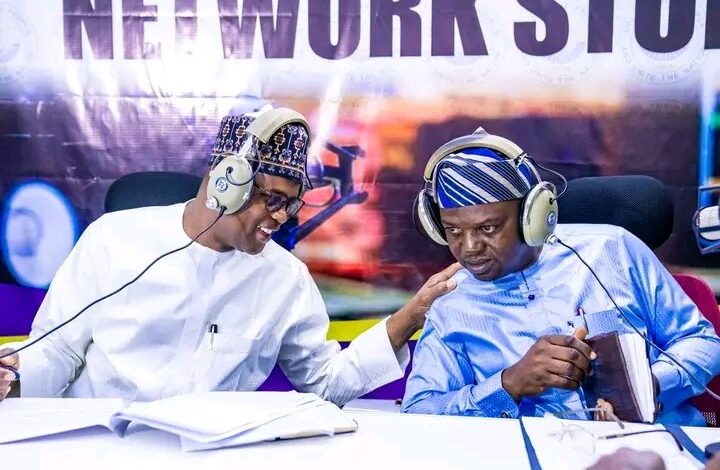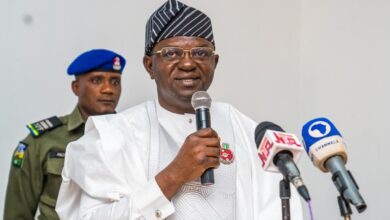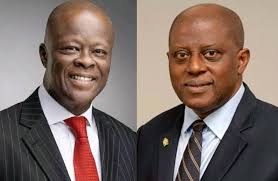
With an estimated 26.5 million Nigerians projected to grapple with high levels of food insecurity, and approximately 9 million children at risk of acute malnutrition this year, the ongoing efforts by the Federal Government to ensure food security in the country is timely and commendable.
Food Security, based on the 1996 World Food Summit, is when “all people, at all times, have physical and economic access to sufficient safe and nutritious food that meets their dietary needs and food preferences for an active and healthy life”.
This is also in alignment with the goal 2 of the United Nations Sustainable Development Goals (SDGs) to end hunger and ensure access by all people, in particular the poor and people in vulnerable situations, including infants, to safe, nutritious and sufficient food all year round by 2030.
The contribution of water in achieving this all-important target cannot be overstated as about 52.8million gallons of water per second are required to produce enough food to sustain the World’s population, with food accounting for approximately 66 percent of the total water consumption.
Furthermore, going by the benchmark used by the Food and Agriculture Organization (FAO), every person needs 50 to 100 liters of water per day to meet basic drinking, cooking, and hygiene requirements. By comparison, the organization said, it takes 2,000 to 5,000 liters of water per person per day to grow the food to support diets of 2,800 kilocalories daily.
Water is also indispensable in food production, and that makes the job of the Minister of Water Resources and Sanitation, Prof. Joseph Utsev, and the Minister of State for Water Resources and Sanitation, Rt. Hon. Bello Goronyo, Esq., to be more strategic.
The Ministry is responsible for the management of water supply, irrigation, freshwater, and aquaculture. It aims to provide sustainable access to safe and sufficient water to meet the cultural and socio-economic needs of all Nigerians, while enhancing public health, food security, and poverty reduction. The Ministry also strive to maintain the integrity of the freshwater ecosystem of the nation.
On assumption of office, the Ministers hit the ground running by introducing various initiatives to bridge the existing water access gap in the country, in line with the Renewed Hope Agenda of President Bola Tinubu.
The initiatives were developed in partnership with government at all levels and critical Stakeholders in the water and sanitation sector, to improve funding for water resources projects and programmes, increasing resource mobilization, and enhancing investment in water infrastructure.
This follows the United Nations report that out of every 100 persons, 25 get their water from open streams and ponds which are often contaminated by human feces or waste with disastrous health and environmental consequences.
To address these pressing water and sanitation issues, the Ministry is implementing policies and programmes aimed at improving water supply, sanitation, and hygiene services.
WATER ACCESS/QUALITY
While highlighting the impact of the initiatives by the Ministry, Prof. Utsev said, under the Partnership for Expanded Water Supply, Sanitation, and Hygiene (PEWASH) Programmes which was aimed at increasing access to water supply in rural areas as well as sanitation in public places, 2,190 boreholes were constructed to serve 2,006,250 persons with 3,001,578 litres/day.
On Sustainable Urban-Rural Water Sanitation and Hygiene (SURWASH), he said, the Ministry, with support from the World Bank, launched the Programme to increase access to water supply in Urban, Small Towns, and Rural Areas as well as strengthen Sector Institutions in the participating States.
He stated that the National WASH Action Plan was developed by the Ministry to address the low and poor access to WASH services in the country, noting that so far, the Ministry had constructed 6,761 water schemes in the urban, semi-urban and rural areas of the country for the water supply needs of about 32 million people.
SANITATION/HYGIENE
“Under the sanitation sub-sector, 10,568 sanitation facilities were constructed in institutions and public places in 127 Local Government Areas to serve 550,820 persons.
“The 2021 Water, Sanitation and Hygiene National Outcome Routing Mapping (WASHNORM) III reported a national access to basic drinking water supply services of 67% and access to basic sanitation services of 46%”, he added.
Giving an update on Clean Nigeria Campaign to end open defecation by 2025, the Minister announced that since assumption of office, the Ministry has “secured additional 15 ODF LGAs in five (5) States of the Federation, and as of today, 120 LGAs across the country are Open Defecation Free (ODF) with Jigawa State having earlier attained the Statewide ODF in Nigeria”.
FOOD SECURITY
The Ministry is in strategic partnership with some state governments in food production to enhance food security, leveraging on the irrigation and River Basin potentials in the states, in alignment with the Food Security Agenda of President Bola Tinubu.
The Ministry under the leadership of Prof. Utsev and Rt. Hon. Goronyo has completed some irrigation schemes, and handed over to farmers for cultivation through the World Bank Sponsored Transforming Irrigation Management in Nigeria (TRIMING) Project.
These schemes include: The Hadejia Valley 5,750ha irrigation scheme in Jigawa State; Kano River 14,444ha irrigation scheme in Kano State; and Gari 2,114ha irrigation project in Kano and Jigawa States.
The Ministry is also, developing irrigable areas totalling over 15,000ha, which is nearing completion. This will be handed over to farmers by the end of the 3rd quarter of year 2024.
The Ministry also proposes to channel all efforts towards achieving the target of developing 500,000 hectares of land by 2030.This, it said, would be achieved in collaboration with the Federal Department of Irrigation and Drainage, River Basin Development Authorities, States, LGAs, and the Private Sector.
POWER
The Federal Government through the Ministry has concessioned 110 megawatts of hydropower, while 967 megawatts are currently being developed to also meet the energy demands of Nigerians.
The Ministry has been able to attract private sector investors for the development of some identified PPP projects in the Water sector, especially in the areas of Hydropower project development in collaboration with other Ministries, Departments, and Agencies (MDAs).
It has also made tremendous progress in the Brown and Green Field Hydropower Development through PPPs. It has conclusively concessioned some projects while still developing others through various PPP models itemized below: Concession of the 40MW Dadinkowa Hydropower Project in Gombe State. It has attained financial closure and the plant is operational thereby stabilizing the transmission voltage of the North-East of Nigeria.
It has “concession of the 30MW Gurara Hydropower Plant in Kaduna State up to financial closure and the plant which is under rehabilitation will commence commercial operation in the third quarter of the year 2024.
“Concession of the 40MW Kashimbila Hydropower Plant in Taraba State. The FEC approval has been secured, the concession agreement executed and the commencement Fee paid by the Concessionaire to the Special Concession Account as approved by the Federal Ministry of Finance Budget and National Planning”.
Others, include the “Development of 360MW Gurara Phase II Hydropower Project in Niger State (EPC contract awarded and FEC approval for the concession of Operation and Maintenance of the Power Plant through PPP Model secured).
“Development of 136 MW Manya and 182MW Bawaku Hydropower Project in Taraba and Benue States respectively. This is at the procurement stage and ready to proceed to the Request for Proposal (RFP) Stage.
“Development of 460 MW Katsina-Ala Hydropower Project in Benue. This is also at the procurement stage; Proceeding to the Request for Proposal (RFP) Stage/Negotiation with the Proponent.
“Development of 20MW Farin Ruwa Hydropower Plant Project in Nasarawa State. Advertisement of Request for Qualification (RFQ) has been placed in the Federal Tenders Journal, The Nation, and Leadership Newspapers of Monday, 22nd January 2024 for value for money to the Government.”






